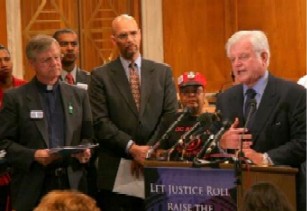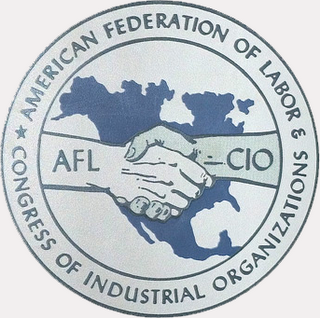This article from a Minnesota newspaper discusses Congress's plans for a federal increase in the minimum wage now that they have a democratic majority in favor of the increase.

I can't help but notice the parallel between the decade of stagnation in the federal minimum wage and the 12 years of Republican control in Congress. The last wage increase did occur under a Republican Congress, though, in 1996. Nancy Pelosi is quoted saying that a federal minimum wage increase is among the Democrats' top priorities and will be accomplished within their first 100 hours in power. They hope to pass Ted Kennedy's [D-Mass.] 2005 bill proposal for an incremental increase over two years to $8.25/hour. In January, Kennedy will become the Chairman of the Senate Committee on Health, Education, Labor, and Pensions, a role even more suited to making changes in the labor field.

Main opposition comes from the National Restaurant Association, who conducted a survey showing that nearly 90% of restaurants would raise menu prices in response to the higher minimum wage. This is so frustrating because the whole reason the minimum wage needs to increase is because of the inflation and expansion of prices that has already occurred--people are so upset because their wages are not keeping up with the rapid growth of the economy. Restaurants think they need to increase their wages because their profits have already increased due to economic growth. The owners are used to taking home larger paychecks and are not willing to make cutbacks of their own salaries to help their workers keep up with already-rising costs.

The AFL-CIO, America's Labor Movement, have been a major force in this effort, staging support rallies outside of Congress.
The Bush administration has released some predictably vague rhetoric on this topic--just like in Chicago with Daley, Bush has the power to issue a veto even if Congress votes unanimously for this bill. The article says that Bush would be under immense pressure to sign it, but Daley was also under pressure. His decision affects many groups, but he is not running for re-election. In fact, it might be beneficial for him to sign the bill because his administration could surely spin any anger back towards the Democratic Congress, thus benefiting the campaign of 2008's Republican candidate.
